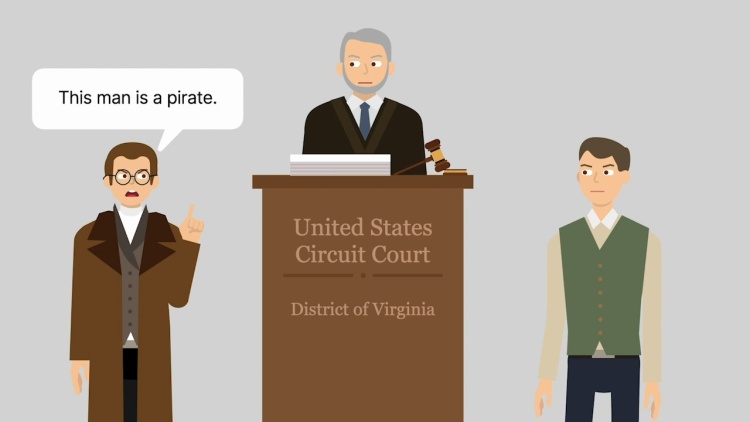United States v. Smith
United States Supreme Court
5 Wheat. 153, 18 U.S. 153, 5 L.Ed. 57 (1820)

- Written by Sean Carroll, JD
Facts
Thomas Smith (defendant) was a crewmember of a ship commissioned by the Buenos Ayres government. The crewmembers seized a ship and then plundered and robbed a Spanish ship in international waters. United States law stated that if someone committed piracy, as defined by international law, and that person was found in the United States, the person was subject to the death penalty. Smith was brought into the United States and indicted for piracy. A jury of the Circuit Court of Virginia retuned a special verdict finding that if Smith’s actions constituted piracy under United States law, he was guilty, but if the conduct was not piracy under United States law, he was not guilty. The question became, then, whether Smith’s conduct was piracy under international law, and thus punishable under United States law. This question was certified to the United States Supreme Court. Smith argued that Congress was required to specifically define piracy to punish it and could not rely on an international-law definition.
Rule of Law
Issue
Holding and Reasoning (Story, J.)
What to do next…
Here's why 907,000 law students have relied on our case briefs:
- Written by law professors and practitioners, not other law students. 47,100 briefs, keyed to 996 casebooks. Top-notch customer support.
- The right amount of information, includes the facts, issues, rule of law, holding and reasoning, and any concurrences and dissents.
- Access in your classes, works on your mobile and tablet. Massive library of related video lessons and high quality multiple-choice questions.
- Easy to use, uniform format for every case brief. Written in plain English, not in legalese. Our briefs summarize and simplify; they don’t just repeat the court’s language.





